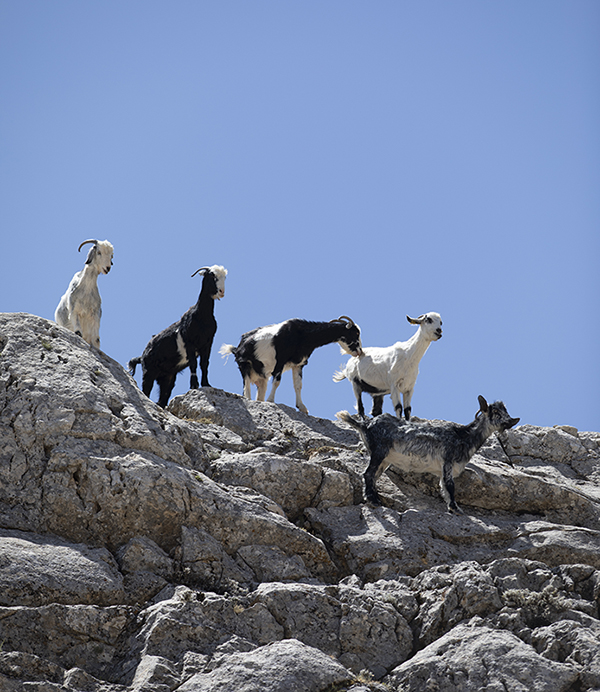#MoveTheDate
2.2
Days
If goat meat were produced worldwide via traditional nomadic pastoralism practices like those of the Sarıkeçili nomadic pastoralists of the Taurus mountains, Earth Overshoot Day would move by 2.2 Days.
What is the solution?
Using nomadic pastoralism, a traditional Turkish cultural practice which can strengthen both biodiversity and community wellbeing, to produce goat meat.
This solution improves our resource security in the food category.
How does it #MoveTheDate?
In Turkey, goat meat production that uses Turkish nomadic pastoralist methods requires 135% less of the planet’s biocapacity than goat meat that is produced conventionally. Shifting to this method of meat production – based on the land stewardship practices of mobile pastoralism – brings numerous environmental benefits to grazing lands, including soil carbon sequestration.
How is it scalable?
The amount of meat produced using conventional methods far outnumbers that produced using nomadic pastoralism, which leaves ample opportunity to adopt this practice. However, further research is needed to assess if it is feasible to satisfy the current demand for goat meat via nomadic practices.
What is the solution?
Using nomadic pastoralism, a traditional Turkish cultural practice which can strengthen both biodiversity and community wellbeing, to produce goat meat.
This solution improves our resource security in the food category.
How does it #MoveTheDate?
In Turkey, goat meat production that uses Turkish nomadic pastoralist methods requires 135% less of the planet’s biocapacity than goat meat that is produced conventionally. Shifting to this method of meat production – based on the land stewardship practices of mobile pastoralism – brings numerous environmental benefits to grazing lands, including soil carbon sequestration.
How is it scalable?
The amount of meat produced using conventional methods far outnumbers that produced using nomadic pastoralism, which leaves ample opportunity to adopt this practice. However, further research is needed to assess if it is feasible to satisfy the current demand for goat meat via nomadic practices.
Nomadic pastoralism is a traditional land stewardship practice in which the browsing activities of herds take place on different grounds seasonally; in the case of the Sarıkeçili nomadic pastoralists, these grounds range from the Mediterranean shores (Mersin province) in winter to mountain grounds (Taurus mountains and beyond) in summer. Global Footprint Network and the Yolda Initiative set out to calculate the Ecological Footprint of goat meat produced by 14 families using this method in the Sarıkeçili nomadic pastoralist community in Turkey. They then compared the average results with national figures for conventionally produced goat meat. The study concluded that the nomadic pastoral model places significantly lower pressure on the environment than conventional production. Additionally, it also strengthens biodiversity and community wellbeing through:
- Rotational grazing, which can offset carbon levels by stimulating plant growth, reducing soil erosion, and sequestering carbon in the soil;
- Direct seeding, which occurs when goat herds disperse forage seeds in native pastures without the need for tilling the soil. This minimizes soil disturbances, thus reducing erosion, increasing soil organic matter, and improving soil health;
- Circular bioeconomy, which is supported by the movement of herds to fallow areas to make use of crop residues for feed and to distribute animal manure as fertilizer;
- Pastoralism, which provides affordable, high-quality proteins and nutrients to meet local demand, and can help reduce a country’s reliance on imports.
There’s no benefit in waiting!
Acting now puts you at a strategic advantage in a world increasingly defined by ecological overshoot. Countless solutions exist that #MoveTheDate. They’re creative, economically viable, and ready to deploy at scale. With them, we can make ourselves more resilient and #MoveTheDate of Earth Overshoot Day. If we move the date 6 days each year, humanity can be out of overshoot before 2050.

